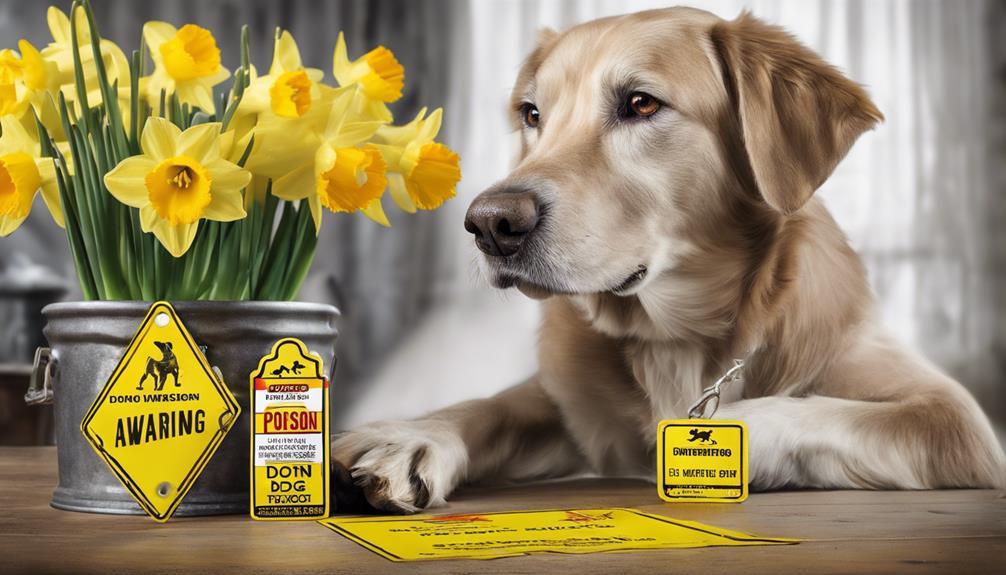When we perfect a crate training schedule, we concentrate on choosing the correct crate size and arranging a cozy space. We establish a consistent schedule for meals, playtime, and bathroom breaks to ensure consistency. Introducing the crate positively with treats is crucial, as well as handling bathroom breaks and offering stimulating toys. By not reinforcing negative behavior and rewarding good behavior, we cultivate a peaceful atmosphere.
Understanding individual puppy needs and adjusting schedules accordingly is key for successful training. The outlined guidelines provide a solid foundation for effective crate training.
Key Takeaways
- Align potty breaks with meals, playtime, and waking up for consistency.
- Customize schedule based on puppy's age, breed, and individual needs.
- Offer breaks every 2-4 hours, adjusting as puppy grows.
- Tailor routine to address unique behaviors and training progress.
- Use crate for structured feeding, play, rest, and potty training.
Setting Up the Crate
When preparing the crate for your puppy, it's crucial to select a size that allows for comfortable movement while also considering the need for proper space management to prevent soiling. The crate should be spacious enough for the puppy to stand up, turn around, and lie down comfortably. However, it shouldn't be too large as this might encourage the puppy to designate a corner for elimination. Placing soft bedding inside the crate not only provides comfort but also helps absorb any accidents.
To aid in proper crate training, consider using a crate divider that can be adjusted as the puppy grows. This allows you to gradually increase the space as the puppy learns to control its elimination habits. Position the crate in a quiet area with some visibility, as puppies often feel more secure when they can still observe their surroundings. By setting up the crate thoughtfully, you create a conducive environment for successful puppy training.
Establishing a Daily Routine

Let's concentrate on setting clear expectations and consistent timing in our daily routine for successful crate training. By establishing a structured schedule that includes specific activities like feeding, playtime, bathroom breaks, and crate training sessions, we can help our puppy adapt to the routine.
Allocating time for naps and rest periods is essential to make sure our furry friend gets the necessary rest and relaxation throughout the day.
Setting Clear Expectations
Establishing a consistent daily routine for crate training is vital in setting clear expectations for your puppy. By following a structured schedule that includes specific times for feeding, potty breaks, playtime, and crate sessions, you create a sense of predictability and security for your furry friend.
This routine helps your puppy anticipate activities, reducing anxiety and aiding in the crate training process. A well-structured schedule also plays an important role in potty training, as clear expectations lead to better behavior management.
Consistency in the daily routine is key to fostering a positive environment for your puppy to thrive in. Remember, a well-planned Schedule isn't just beneficial for you but also for your puppy's overall well-being.
Consistent Timing for Success
To ensure successful crate training, maintaining a consistent daily routine with specific times for meals, potty breaks, playtime, and crate sessions is vital. Consistent timing is essential for helping puppies anticipate activities, reducing anxiety, and fostering good behavior. Here are three key points to emphasize the importance of consistent timing in a puppy crate training schedule:
- Predictability: Establishing set times for essential activities helps create predictability for your puppy, reducing stress and confusion.
- Training Success: Consistent timing aids in effective potty training by regulating when your puppy eats, drinks, and goes outside to eliminate.
- Behavioral Stability: Following a structured schedule not only nurtures a sense of security for your puppy but also strengthens the bond between you and your pet through reliable interactions.
Introducing the Crate Positively
How can we introduce the crate positively to our puppy to create a welcoming environment for them?
When starting on crate training, it's essential to establish a positive association with the crate from the beginning. Begin by placing enticing treats or toys inside the crate to encourage your puppy to explore this new space willingly. Incorporate the crate into enjoyable experiences like mealtime or playtime to foster a sense of comfort and security.
Allow your puppy to enter and exit the crate freely without any pressure, letting them acclimate at their own pace. Use verbal cues and gentle encouragement to guide them into the crate, ensuring a stress-free introduction.
Gradually increase the time spent in the crate while offering rewards and praise for calm behavior inside. By associating the crate with positivity and implementing consistent training methods, you can help your puppy view the crate as a safe and comfortable den.
Managing Potty Breaks

We'll cover the essential points about managing potty breaks for your puppy.
Understanding the timing for potty breaks, maintaining vital consistency in the breaks, and rewarding good behavior are essential aspects of effective potty training.
Timing for Potty Breaks
When setting up a crate training schedule, it's essential to take into account the timing for potty breaks as a key element in managing your puppy's bathroom needs. Puppies generally need potty breaks every 2-4 hours based on their age and bladder capacity. Younger puppies may require more frequent potty breaks, while older puppies can hold it longer. Offering potty breaks after meals, playtime, and waking up helps prevent accidents.
- Puppies need potty breaks every 2-4 hours.
- Younger puppies may require more frequent potty breaks.
- Older puppies can hold it longer between breaks.
Consistency in Breaks
Moving on to consistency in managing potty breaks, maintaining a regular schedule is essential for reinforcing good habits and aiding in the progression of potty training for your puppy. Offering potty breaks every 2-4 hours, aligned with your puppy's age and bladder capacity, is important.
Watch for signs like sniffing, circling, or restlessness that indicate the need for a break. Immediate access to the elimination spot after meals, naps, and playtime is key. Adjust the frequency of breaks as your puppy grows and gains bladder control.
Consistency in timing not only helps in reinforcing good habits but also accelerates potty training progress by establishing a routine that supports bladder control development.
Rewarding Good Behavior
Rewarding good behavior during potty breaks reinforces the desired elimination habits in puppies and encourages consistent positive behavior through the use of high-value treats.
To effectively implement this aspect of dog training, it's essential to follow a schedule and adhere to it. Consistent positive reinforcement is key in reinforcing the association between successful potty breaks and rewards.
Here are some essential points to keep in mind when rewarding good behavior during potty breaks:
- Offer high-value treats immediately after successful potty breaks.
- Provide rewards in the elimination spot to strengthen the connection between potty breaks and positive reinforcement.
- Establish a positive reinforcement loop by consistently rewarding proper elimination.
Occupying Time in the Crate

To keep your puppy engaged and content in the crate, provide interactive toys such as puzzle feeders and durable chew toys to prevent boredom and destructive behavior.
Interactive toys like puzzle feeders can keep your puppy mentally stimulated, helping to prevent anxiety or frustration while crated. Additionally, durable chew toys are essential to satisfy your puppy's natural urge to chew, preventing them from turning to crate bars or bedding out of boredom.
Rotating different toys regularly can help maintain your puppy's interest and prevent them from getting bored with the same toys. Offering frozen Kongs filled with treats or peanut butter can also provide extended engagement during crate time, keeping your puppy occupied and mentally stimulated.
In addition to toys, consider using calming music or white noise to create a soothing environment for your puppy in the crate. These sounds can help mask external noises and create a sense of comfort and security, enhancing your puppy's overall crate training experience.
Addressing Training Challenges

When addressing training challenges during crate training, consistency in following the schedule is essential for success. It's vital to address these challenges head-on using effective strategies to guarantee your pet's progress.
Here are some key points to keep in mind:
- Avoid Reinforcing Unwanted Behaviors: Patience is critical when handling whining and barking in the crate. Avoid reinforcing these behaviors by not giving in to your pet's demands, as this can set back the training progress.
- Provide Adequate Exercise: Engaging your pet in mental and physical exercise before bedtime can help alleviate restlessness and reduce nighttime whining or barking. A tired pet is more likely to settle down calmly in the crate.
- Utilize Positive Reinforcement Techniques: Positive reinforcement, such as rewarding good behavior with treats or praise, can be a powerful tool in crate training. Encouraging desired behaviors will help your pet associate the crate with positive experiences, making training more effective.
Adapting Schedules for Individual Needs

As we customize our crate training schedules to meet individual puppy needs, it becomes essential to take into account factors such as age, breed, and health conditions that may impact the frequency and timing of training sessions. By observing your puppy's behaviors and responses, you can tailor the schedule to best suit their requirements. Adjusting the routine based on their cues and commands can greatly aid in their training progress. Understanding your puppy's unique patterns and signals is vital in scheduling training sessions effectively.
| Factors to Take Into Account | Crate Time | Feeding Schedule |
|---|---|---|
| Age | Younger puppies may need more frequent breaks due to smaller bladders. | Adjust feeding times to align with the crate schedule for potty training consistency. |
| Breed | Some breeds may have higher energy levels requiring more playtime before crate sessions. | Certain breeds may have specific dietary needs that affect the timing of meals. |
| Health Conditions | Puppies with health issues may need more frequent monitoring and shorter crate sessions. | Health conditions may require specialized feeding schedules or medication times. |
Frequently Asked Questions
What Is a Good Crate Training Schedule?
A good crate training schedule involves regular potty breaks, playtime, meals, and rest periods for the puppy. Structured intervals in the crate build routine. Short sessions familiarize the puppy with the crate. Tailoring the schedule to individual needs is key for effective training.
How Do You Master Crate Training?
To master crate training, we establish a consistent routine for our puppy, use positive reinforcement, gradually increase crate time, monitor behavior, and adapt the schedule as needed. Consistency, patience, and structure are vital for success and security.
How Many Times a Day Should You Work on Crate Training?
We work on crate training with our puppy at least 3-4 times a day to establish a routine. Starting with short, positive sessions helps increase comfort. Consistency and monitoring progress are key for effective results.
How Long Does It Take to Properly Crate Train a Dog?
It takes varying lengths of time to properly crate train a dog, contingent on factors like age and temperament. Consistency, patience, and essential reinforcement are pivotal. Adjusting the training schedule based on progress can expedite the process.
How Does the 7-Step Dog Crate Training Schedule Differ from the Standard Crate Training Schedule?
The 7-step dog crate training schedule differs from the standard crate training schedule by offering a more detailed and structured approach. It includes specific steps for building positive associations with the crate, gradually increasing time spent inside, and teaching commands for entering and exiting the crate.
Conclusion
To wrap up, mastering the crate training schedule demands patience, persistence, and positivity.
Remember to:
- Set up the crate properly
- Establish a daily routine
- Introduce the crate positively
- Manage potty breaks effectively
- Occupy time in the crate with engaging activities
- Address training challenges promptly
- Adapt schedules for individual needs.
By following these steps diligently, you can guarantee that your furry friend becomes a crate-training champ in no time!










